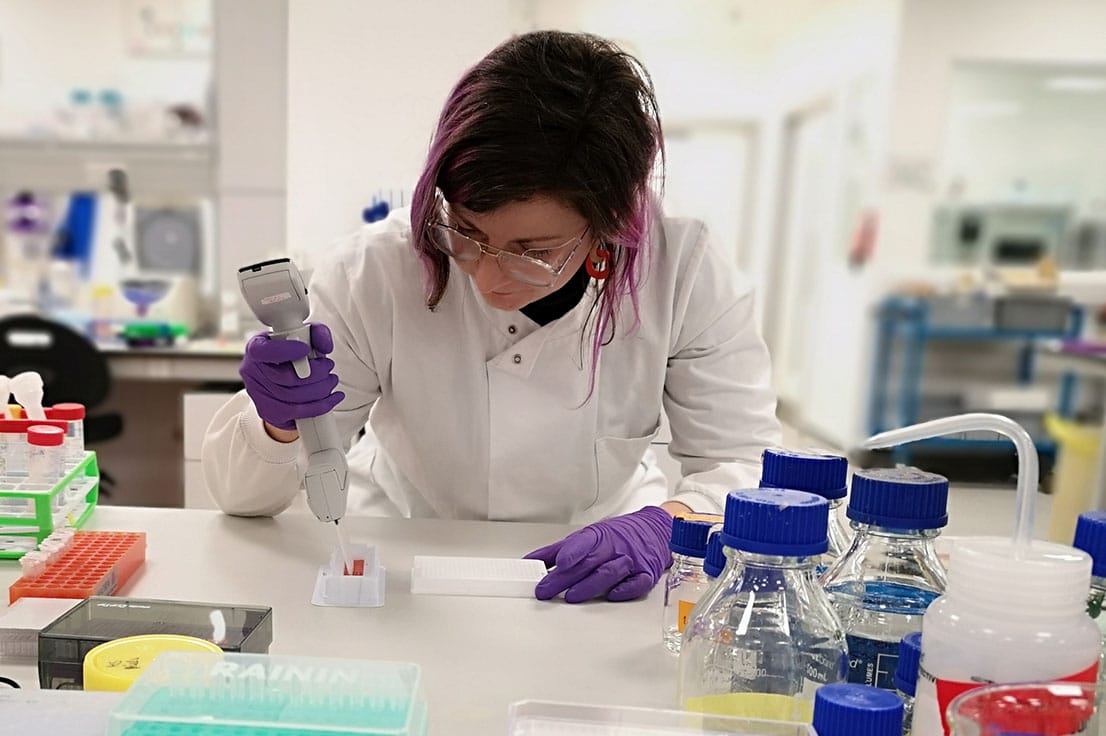A new partnership between LifeArc and the US-based Crohn’s & Colitis Foundation (Foundation) aims to progress encouraging research that could help to advance a promising new prognostic test closer to the clinic. The goal is to help deliver precision medicine for children with Crohn’s disease, improving the chances of successful treatment and the quality of life for those living with these serious long-term conditions.
Crohn’s disease is a type of Inflammatory Bowel Disease (IBD) and it is a lifelong condition in which the chronic inflammation of the gastrointestinal tract leads to a range of debilitating symptoms including recurring diarrhoea, pain, cramps or swelling in the abdomen, weight loss and extreme tiredness as well as very severe complications that require surgery. It can happen at any age but is usually diagnosed in teens and young adults.
Currently there are no cures for Crohn’s disease, but a range of treatments are available that can help to control symptoms and improve a person’s quality of life.
Doctors will usually start with medications, which include a variety of small molecule drugs, such as corticosteroids and anti-inflammatories. However, if initial therapies stop working, they may switch to other drugs – typically anti-TNF biologics. Unfortunately, it can take time to find the best treatment for each child, during which their condition may worsen. Around one in five children with Crohn’s disease goes on to develop serious complications that require surgery.
Recent research suggests that the early use of biologics could help improve long-term outcomes for children with IBD. But these powerful treatments can have extreme side effects – and in around four in ten people they either don’t work at all or stop working later. Currently, there is no way for doctors to predict who will benefit from these drugs in advance.
“LifeArc and the Foundation are working together to evaluate and develop a potential prognostic test that could accurately predict which children with Crohn’s disease are most likely to develop complications – as well as identify those who are most likely to benefit from anti-TNF therapy. This important tool would help doctors to personalise treatment for each child – improving the likelihood of a successful outcome while also reducing the risk of unnecessary side effects.”
Carolyn Clarke, Senior Scientist at LifeArc’s Center for Diagnostics Discovery said: “We are pleased to strengthen our ties with this leading international charity. Together, we feel that we are well-positioned to advance a crucially important new prognostic tool that will benefit children with IBD.”
“Paediatric patients are among the fastest growing group of the IBD population. 20% of children with Crohn’s disease develop complications, such as intestinal strictures and fistulas, which generally require surgery and can drastically affect the quality of life of patients,”said Andrés Hurtado-Lorenzo PhD, vice president of translational research.
“With early understanding of disease course and response to treatment, physicians and parents could make decisions based on patient’s biological and clinical characteristics to deliver the right drug at the right time to the right patient, ultimately improving quality of life for the most vulnerable of patients.”




